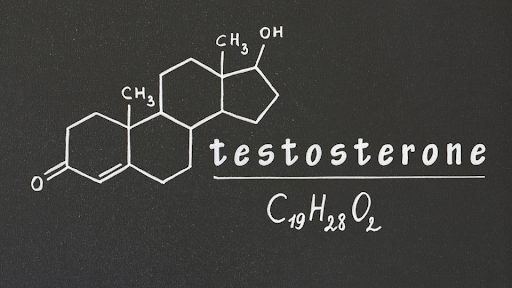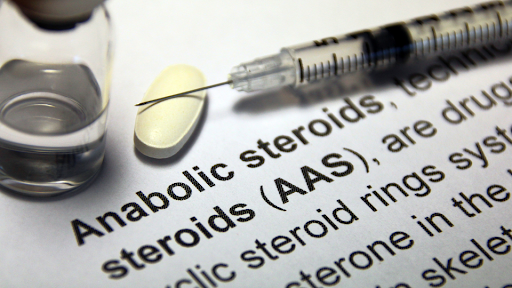Testosterone is a hormone that plays a vital role in the development of male physical characteristics and is essential for various bodily functions in both men and women. However, there is often confusion surrounding testosterone's classification, particularly regarding its status as a steroid. This article aims to clarify what testosterone is, its functions, and its classification as a steroid.
 Understanding Testosterone
Understanding Testosterone
Testosterone is primarily produced in the testes in men and in smaller amounts in the ovaries in women, as well as in the adrenal glands of both sexes. It is classified as an androgen, which is a type of steroid hormone that promotes the development of male characteristics. As an androgen, testosterone is responsible for various functions, including muscle and bone mass maintenance, fat distribution, and the regulation of libido. The production of testosterone typically peaks during adolescence and early adulthood, gradually declining with age, which can lead to noticeable changes in physical and mental health.
The Role of Testosterone in the Body
Testosterone has numerous functions that extend beyond just the development of male traits. It plays a crucial role in:
Muscle Growth: Testosterone aids in muscle protein synthesis, which is essential for muscle growth and repair. This is why many athletes and bodybuilders focus on maintaining optimal testosterone levels to enhance their performance and recovery.
Bone Density: It contributes to bone density, reducing the risk of osteoporosis. Studies have shown that men with higher testosterone levels tend to have stronger bones, which can be particularly important as they age.
Fat Distribution: Testosterone influences fat distribution in the body, helping to maintain a healthy weight. It encourages the body to store fat in a more favorable pattern, which can influence overall body composition.
Libido and Sexual Function: It is a key hormone in regulating sexual desire and performance. Low testosterone can lead to diminished sexual interest, which can affect relationships and overall quality of life.
Testosterone Levels and Health
Maintaining balanced testosterone levels is crucial for overall health. Low testosterone levels can lead to various health issues, including fatigue, depression, reduced muscle mass, and decreased libido. Moreover, low levels can also impact cognitive functions, leading to difficulties with memory and concentration. Conversely, excessively high levels of testosterone, often due to external supplementation or anabolic steroid use, can lead to serious health complications such as cardiovascular issues, liver damage, and psychological effects like aggression and mood swings. Regular monitoring of testosterone levels, especially in men over 40 or those experiencing symptoms of imbalance, can be an important step in maintaining overall well-being.
In addition to hormonal fluctuations, lifestyle factors such as diet, exercise, and stress management can significantly influence testosterone levels. Engaging in regular physical activity, particularly resistance training, has been shown to naturally boost testosterone production. Similarly, a balanced diet rich in healthy fats, proteins, and essential vitamins and minerals can support hormone health. On the other hand, chronic stress can lead to elevated levels of cortisol, a hormone that can inhibit testosterone production, underscoring the importance of holistic health practices in maintaining hormonal balance.
What Are Steroids?
Steroids are a class of organic compounds that share a common chemical structure characterized by four fused carbon rings. They can be classified into two main categories: corticosteroids and anabolic steroids. While corticosteroids are often used to reduce inflammation and treat various medical conditions, anabolic steroids are synthetic derivatives of testosterone designed to promote muscle growth and enhance athletic performance. The distinction between these two types of steroids is crucial, as their applications and effects on the body differ significantly.
In addition to their medical uses, steroids have garnered attention in popular culture, often associated with athletes and bodybuilders seeking a competitive edge. The allure of rapid muscle gain and improved physical performance can be tempting, leading many individuals to explore the use of these substances, sometimes without proper guidance or understanding of the potential risks involved. This has sparked ongoing debates about ethics in sports, health implications, and the effectiveness of steroid use in achieving long-term fitness goals.
 Types of Steroids
Types of Steroids
Understanding the different types of steroids can help clarify the role of testosterone:
Corticosteroids: These are used to treat conditions like asthma and arthritis by reducing inflammation. They work by mimicking the effects of hormones your body produces naturally in your adrenal glands, helping to regulate metabolism, immune response, and stress.
Anabolic Steroids: These are synthetic variations of testosterone that are often misused for muscle building and performance enhancement. They can lead to significant changes in body composition, promoting not just muscle hypertrophy but also increased strength and endurance.
The Misuse of Anabolic Steroids
The misuse of anabolic steroids has become a significant concern, particularly in sports and bodybuilding. While they can enhance performance and muscle growth, they also come with a range of adverse effects, including:
Moreover, the psychological dependency on anabolic steroids can lead to a cycle of abuse, where individuals feel compelled to continue using them despite the negative consequences. This dependency can manifest in various ways, including body dysmorphic disorders, where users may perceive their bodies as inadequate, driving them to seek even higher doses or additional substances. The societal pressure to achieve an ideal physique, combined with the perceived benefits of steroid use, creates a complex environment that complicates the conversation around health, fitness, and ethical sportsmanship.
Is Testosterone a Steroid?
Given that testosterone is an androgen and shares the chemical structure of steroids, it is indeed classified as a steroid hormone. However, the term "steroid" can have different connotations depending on the context. In the medical community, testosterone is recognized for its essential roles in health and development, while in the realm of sports and bodybuilding, it is often associated with misuse and abuse. This duality in perception highlights the importance of understanding testosterone's biological functions versus its potential for misuse in competitive environments.
Testosterone plays a vital role in various physiological processes, including the development of male reproductive tissues, the promotion of secondary sexual characteristics, and the maintenance of muscle mass and bone density. Its influence extends beyond just physical attributes; it also affects mood, energy levels, and overall well-being. This complex interplay of functions is why testosterone is often a focus of both medical research and athletic performance discussions.
Natural vs. Synthetic Testosterone
Natural testosterone produced by the body is crucial for health, but synthetic versions, often found in anabolic steroids, can lead to significant health risks. Understanding the differences between natural and synthetic testosterone is essential for making informed decisions regarding hormone therapy or supplementation. Natural testosterone is secreted by the testes in men and, to a lesser extent, by the ovaries in women, as well as the adrenal glands in both sexes. This naturally occurring hormone is tightly regulated by the body’s endocrine system, ensuring that levels remain within a healthy range.
In contrast, synthetic testosterone is manufactured in laboratories and is often designed to enhance its anabolic properties. While some individuals may seek synthetic testosterone for legitimate medical reasons, such as hormone deficiencies, others may misuse it to enhance athletic performance or physique. This misuse can lead to a range of adverse effects, including cardiovascular issues, liver damage, and psychological changes such as aggression and mood swings. Thus, the distinction between natural and synthetic testosterone is not merely academic; it has real implications for health and safety.
Testosterone Replacement Therapy (TRT)
For individuals with clinically low testosterone levels, testosterone replacement therapy (TRT) can be a beneficial treatment option. TRT involves administering testosterone to restore levels to a normal range, thereby alleviating symptoms associated with low testosterone. However, it is essential to approach TRT under medical supervision to avoid potential side effects and health risks. Doctors typically evaluate a patient's symptoms alongside blood tests to determine if TRT is appropriate, ensuring a tailored approach to treatment.
TRT can take various forms, including injections, patches, gels, or pellets, each with its own benefits and drawbacks. Patients may experience improvements in energy levels, libido, mood, and muscle strength, which can significantly enhance quality of life. However, the therapy is not without its risks; potential side effects can include increased red blood cell count, sleep apnea, and an elevated risk of prostate issues. Therefore, ongoing monitoring and regular consultations with healthcare providers are crucial to ensure that the benefits of TRT outweigh any potential risks, allowing for a safe and effective management of testosterone levels.
How Do I Know If I Need Testosterone Therapy?
Determining whether testosterone therapy is necessary involves a comprehensive evaluation of symptoms and blood tests to measure testosterone levels. Common symptoms of low testosterone include:
Fatigue and decreased energy levels
Reduced libido and sexual dysfunction
Loss of muscle mass and strength
Increased body fat
Depression or mood changes
Consulting a Healthcare Professional
Before considering testosterone therapy, it is crucial to consult with a healthcare professional. They can provide guidance on testing, potential benefits, and risks associated with therapy. Utilizing telehealth services, such as those offered by Doctronic, can facilitate access to medical advice and consultations from the comfort of your home.
The Role of AI in Healthcare
In recent years, artificial intelligence has begun to revolutionize healthcare, offering innovative solutions for diagnosis and treatment. With platforms like Doctronic, patients can receive immediate AI-driven consultations that synthesize the latest medical research and provide personalized recommendations. This technology not only enhances patient care but also makes healthcare more accessible.
Potential Risks of Testosterone Therapy
While testosterone therapy can be beneficial for those with low testosterone levels, it is not without risks. Some potential side effects include:
Increased risk of cardiovascular issues
Sleep apnea
Skin reactions, such as acne or rashes
Hormonal imbalances leading to mood changes
Monitoring During Therapy
Patients undergoing testosterone therapy should be closely monitored by healthcare professionals. Regular blood tests can help track testosterone levels and monitor for any adverse effects. This proactive approach ensures that therapy remains safe and effective.
Alternatives to Testosterone Therapy
For those who may not be candidates for testosterone therapy or prefer alternative approaches, lifestyle modifications can significantly impact testosterone levels. These may include:
Regular exercise, particularly strength training
A balanced diet rich in nutrients
Stress management techniques
Ensuring adequate sleep
Informed Choices, Better Health
In conclusion, testosterone is indeed considered a steroid, specifically an androgen that plays a crucial role in various bodily functions. While it is essential for health, the misuse of synthetic anabolic steroids poses significant risks. For those experiencing symptoms of low testosterone, consulting a healthcare professional is vital. Telehealth services like Doctronic can provide valuable support and guidance in navigating these health concerns.
Understanding the complexities of testosterone and its implications in health can empower individuals to make informed decisions about their well-being. Whether considering testosterone therapy or exploring lifestyle changes, the key is to approach these choices with care and professional guidance.
Explore Your Health with Doctronic
If you're considering testosterone therapy or have questions about your hormonal health, Doctronic is here to help. Experience the most personal care with our AI doctor that provides quality answers in seconds, drawing from the latest peer-reviewed medical research. With Doctronic, you get unlimited access to a doctor who remembers you and has limitless patience for your health concerns. Skip the line and talk to an AI Doctor now, for free, at Doctronic – where modern medicine meets personalized care.



 Understanding Testosterone
Understanding Testosterone Types of Steroids
Types of Steroids